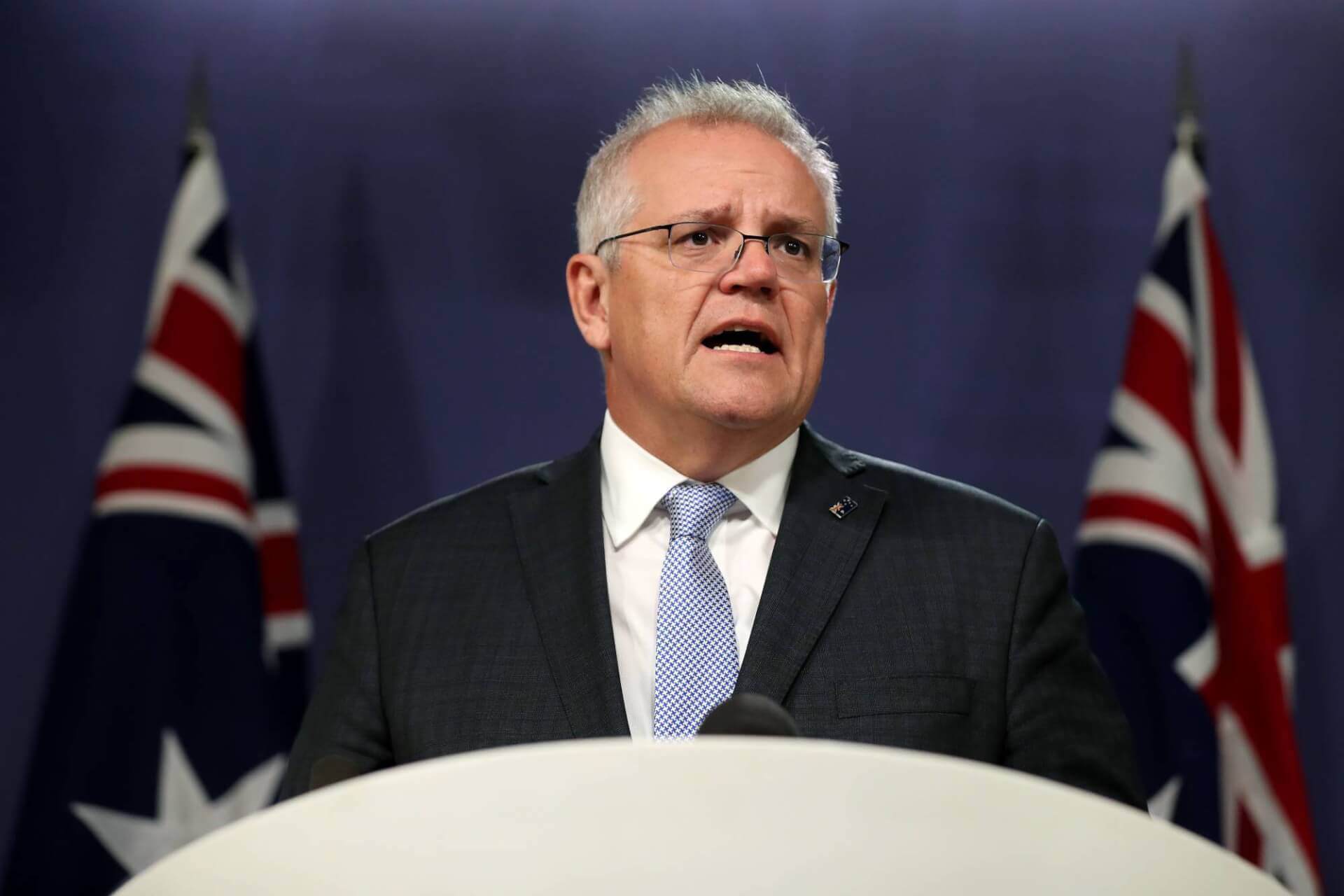Australian Prime Minister (PM) Scott Morrison announced that due to the “imminent international military withdrawal” from Afghanistan, Australia would be shutting down its embassy in Kabul on 28 May, well before the September 11 troop withdrawal deadline. As a result, Australia’s only diplomatic presence in the country will be via sporadic visits rather than “residential representation.” To this end, he said that officials from the Department of Foreign Affairs and Trade (DFAT) will “visit Afghanistan regularly,” and that Australia would only reopen its embassy in Kabul “once circumstances permit.”
Morrison noted that this diplomatic withdrawal is being undertaken due to the “increasingly uncertain security environment” in the country, and remarked that “security arrangements could not be provided to support our ongoing diplomatic presence.” The Australian leader said, however, that this “does not alter [Australia’s] commitment to Afghanistan or its people” and that it would “continue to support the stability and development of Afghanistan in concert with other nations.”
The statement has generated criticism about what the past 20 years have achieved if after all this time the country is still so unsafe that military withdrawal means that diplomats in the country will no longer be safe. Though Morrison says that Australia has “worked […] to assist Afghanistan in protecting itself from exploitation as a base for terrorist groups,” its imminent military and diplomatic withdrawal suggest otherwise.
Opposition politicians, such as the Labor party foreign affairs spokesperson Penny Wong, have said that they were “disappointed that after 20 years of successive Australian military, diplomatic and development engagement in Afghanistan, there was no bipartisan consultation on this important decision.”
Morrison celebrated that Australia has overseen “significant improvements in school enrolments, access to basic health care and women’s representations in politics, which has risen from zero in 2001 to 27 per cent in 2020.” He also revelled in the fact that maternal mortality and child malnutrition have dropped. However, one could ask whether these gains could have been achieved without a 20-year military presence in the country, and thus drawn into question the purpose behind its involvement in a two-decade war that has, by its own admission, evidently failed in achieving its foremost objective of tackling violence, instability, and terrorism.
By most accounts, all Australia has to show for its role in Afghanistan is the fact that it spent billions of dollars and deployed more than 25,000 troops, some of whom have now been dismissed or are being investigated for gruesome acts of violence against Afghan prisoners and civilians, including against children.
These concerns have been echoed by Afghan officials, who released a statement asking: “One question that may come to the minds of some people is: 'Why is Australia leaving Afghanistan in such a situation and why did it spend 20 years in this country?”
The closure of Australia’s embassy could lead to other countries taking the same decision, with many actors worried that complete troop withdrawal in September could lead to an unmanageable rise of the Taliban, which has already been attacking a number of government targets. The Taliban, for its part, has offered to provide a “safe environment” for diplomats. Spokesman Mohammed Naeem has said, “The Islamic Emirate of Afghanistan assures all foreign diplomats and staff of humanitarian organisations that [we] will not pose any threats to them.” However, this has done little to assuage the concerns of actors like Australia.
This week’s decision comes just two weeks after Australian Foreign Affairs Minister Marise Payne visited Kabul and met with President Ashraf Ghani, and Minister for Women’s Affairs Hasina Safi, and Chair of the High Council for National Reconciliation Abdullah Abdullah. During her three meetings, Payne conveyed Australia’s support for troop withdrawal and peace negotiations, “improving the rights of women and girls”, and delivering humanitarian assistance.
At the time, she gave no indication of Australia’s diplomatic withdrawal. In fact, Australia’s ambassador to Kabul, Paul Wojciechowski was only appointed to his post on March 19 of this year, indicating that Australia at the time envisioned a continued diplomatic presence in the country. This week’s events could pave the way for other countries to close their embassies in Kabul as well, which would weaken their ability to influence the Afghan peace process.
Australia’s Decision to Close Kabul Embassy Draws Fresh Criticism of Afghanistan War
Australian PM Scott Morrison noted that this diplomatic withdrawal is being undertaken due to the “increasingly uncertain security environment” in the country.
May 26, 2021

IMAGE SOURCE: BRENDON THORNE / BLOOMBERGAustralian PM Scott Morrison
